Here are some stats to hammer home the crushing monotony of life; a third of Brits wash their clothes three to four times a week and, in their lifetime, will do approximately 13,000 loads of laundry. That’s a lot of washing.
When it comes to laundry, we often operate on autopilot, following the same routine we’ve always done. However, despite our best intentions, we might be unwittingly mistreating both our garments and our washing machines in several ways. For something we’re doing so often, we should really know how to do it right.
We’re here to help with that. Here’s a look at some of the most prevalent laundry faux pas you might be making…
Overloading The Washing Machine
From trying to tackle your never-ending pile of washing to saving money on energy bills, it can be tempting to stuff the washing machine to reduce the number of loads. But did you know that overloading can prevent clothes from being properly, thoroughly cleaned and rinsed? Yep, it makes sense once you think about it – all that dirty water just doesn’t have room to escape if you overload your washing machine.
Exceeding the capacity of your washing machine (and no, capacity isn’t simply how many clothes you can stuff into the drum – it’s the weight it can take) also puts extra strain on the machine as your washing machine won’t be able to spin properly with such a heavy load, which can lead to breakdowns.
Oh, and because it hasn’t spun to its full potential, your clothes will likely be sopping wet at the end of the cycle, which means a) you’ll probably spin it again, and b) your clothes will be wetter coming out, leading to them smelling of mildew, which brings us to our next point…
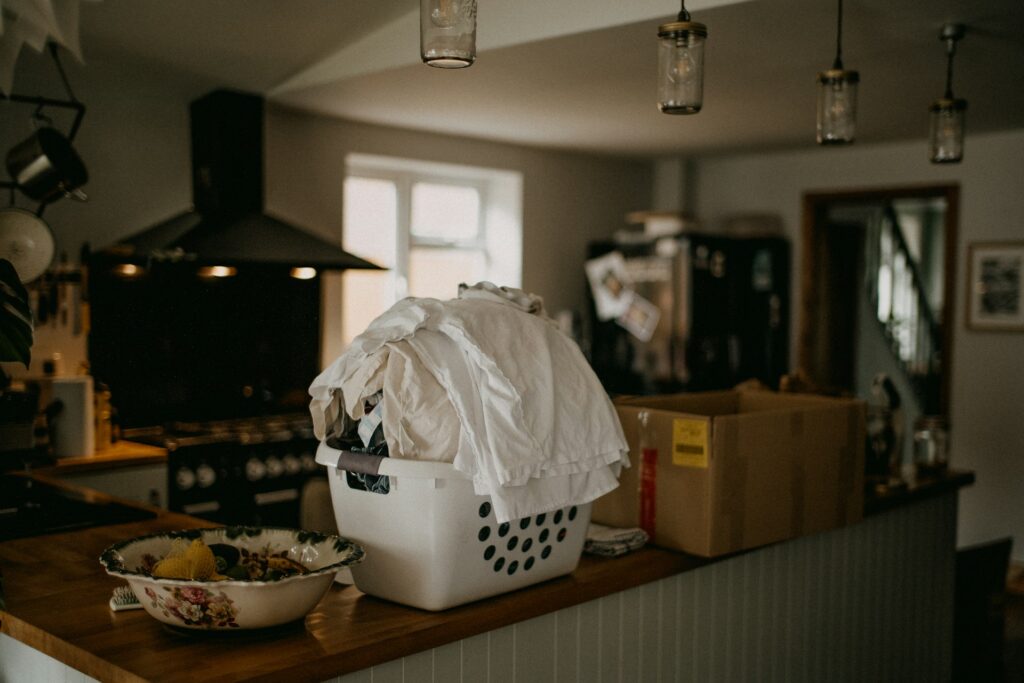
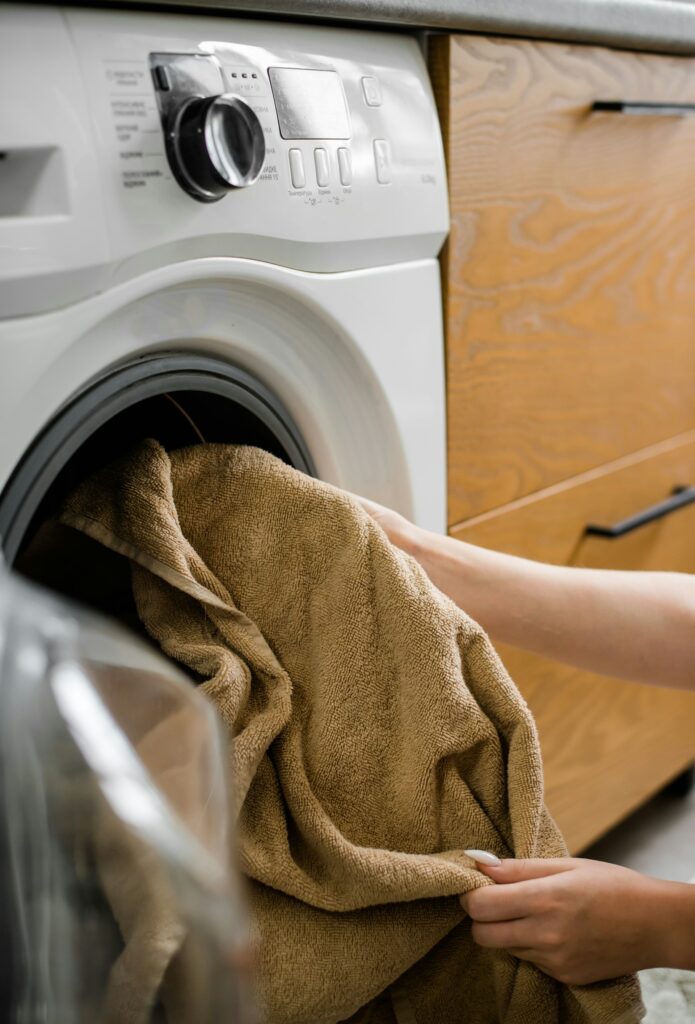
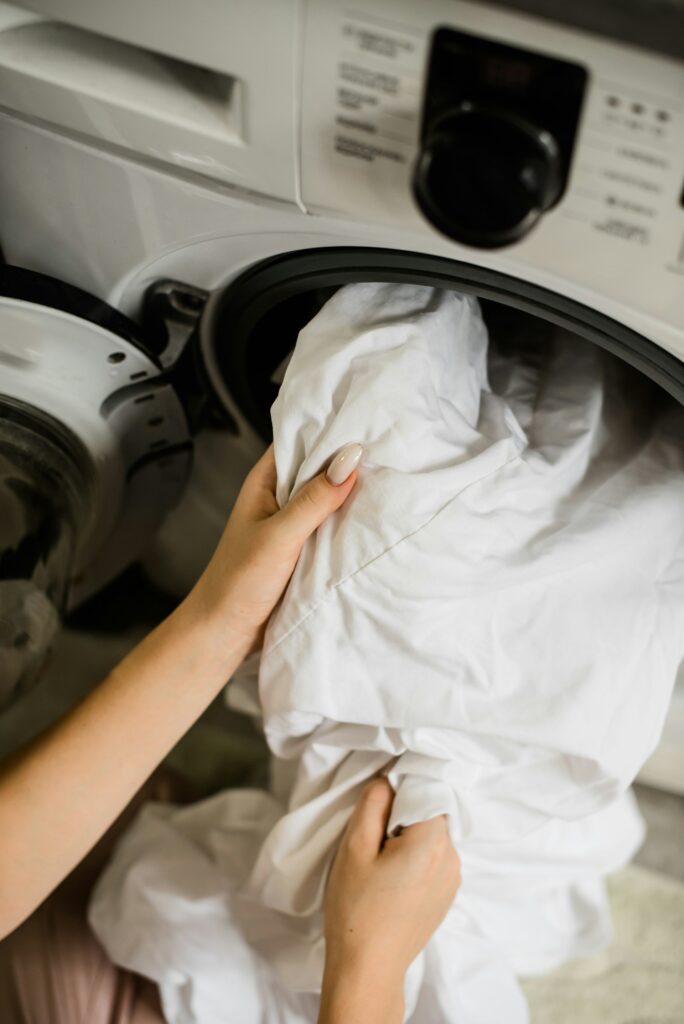
Overburdening Your Clothes Horse
Picture this: You’re on the bus and smell something a little rancid, that’s not unlike the smell of urine. Have you just sat in a fox pee you wonder? They are known for riding buses after all. You sniff again to try and figure out where the smell is and realise it’s you – the bad smell is coming from the jumper you just put on, fresh out of the wash.
Because we live in the UK, most of us have to dry our clothes indoors. But if your clothes smell bad after they’ve been washed, hung and dried, you’re doing something wrong.
We’re all guilty of overloading our clothes horse with wet laundry. Really, it’s something we should stop doing. Good air circulation is essential for effective drying; without it, clothes can take much longer to dry and will likely develop a musty, unpleasant odour. To prevent this, hang items separately and ensure there’s enough space between them for air to flow freely. If you’re short on space, it’s better to dry clothes in batches rather than risk the dreaded smell.


Over Reliance On The Dryer
The convenience of using a tumble dryer is undeniable. However, frequent use can be harsh on your clothes, leading to fading and the breakdown of fabric. Moreover, drying clothes at too high a temperature can cause shrinkage and fabric damage.
When it’s sunny, embrace the British virtue of making the most of the good weather by drying your clothes outside. Though winter is only just creeping in, now is the still ideal time to invest in a rotary washing line, clothes airer or a regular, old washing line. Not using the tumble dryer so often will extend the life of your clothes, it’s also more energy-efficient and kinder to the environment.
Doing Laundry Too Often
Washing clothes after every wear is not always necessary and can contribute to premature ageing – that is apart from underwear and socks – if you’re not washing those after every wear, you should have a word with yourself.
Of course, the frequency with which you should put on a wash can vary greatly depending on the type of clothing, the material it’s made from, how much you sweat, and the activities you do while wearing them. Some clothes experts suggest washing your denim only once a month, for instance.
As a rule of thumb, unless the item is visibly dirty or smells, it’s often possible to wear it multiple times before it needs a wash. This approach is not only better for your clothes and wallet but also reduces water and energy consumption.

Incorrect Temperature Selection
Using the right temperature is crucial for effective washing without damaging fabrics. Hot water can set stains and shrink certain materials, while cold water might not always do the trick for heavy soiling. Always check the care label and err on the side of caution with a cooler wash; modern detergents are formulated to work well at lower temperatures.
Misjudging Detergent Quantity
More detergent does not equate to cleaner clothes. In fact, using too much can leave residue on your garments and in your machine, which can attract dirt and cause wear. Measure detergent according to the instructions and consider the hardness of your water supply when determining the right amount.
Overlooking Washing Machine Maintenance
Repeat after us; ‘a clean machine means clean clothes’. Just like any other appliance, your washing machine requires regular maintenance. This includes cleaning the detergent drawer, door seals, and running a service wash (a hot wash without any clothes) to clear out any built-up residue. Neglecting this can lead to unpleasant odours and reduced efficiency.
And if your machine is making unusual noises, not draining properly, or leaving clothes smelling musty even after a service wash, it might be time to call in a professional. Laundry equipment specialists like PDS Solutions can diagnose issues that aren’t obvious to the untrained eye – sometimes a repair is more cost-effective than replacing the whole unit.
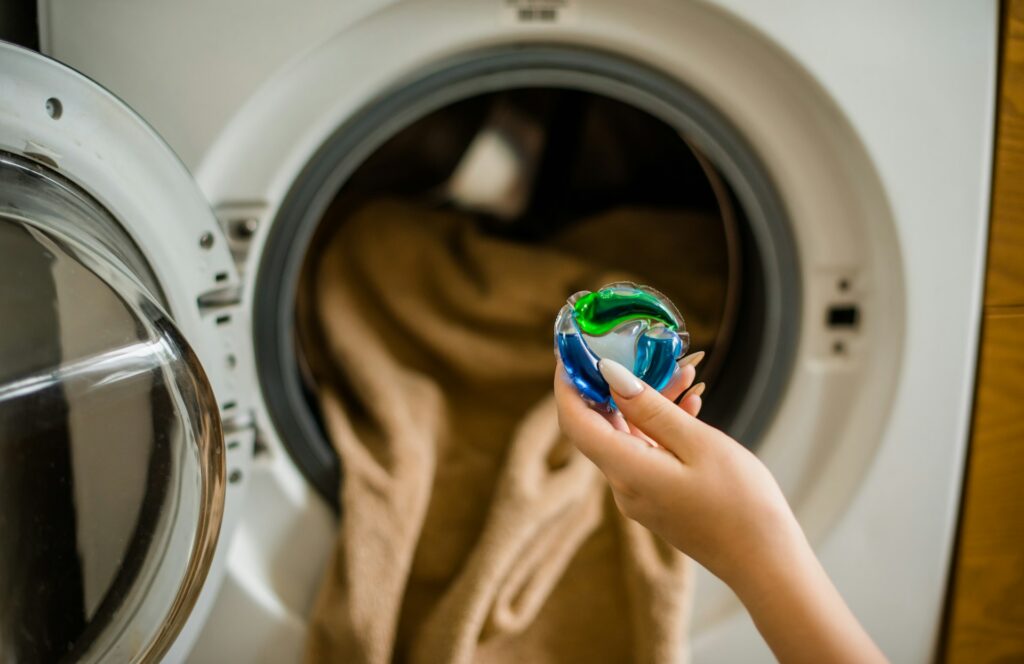
Excessive Fabric Softener Use
Fabric softener can make your clothes feel softer and smell nicer, but it’s not suitable for all types of fabric. For example, using fabric softener on sportswear and other moisture-wicking fabrics is a no-no as it can diminish their ability to manage moisture during physical activities. It shouldn’t be used on silk either. The material of silk is delicate and fabric softeners can leave a residue that may dull the silk’s sheen and diminish its natural softness.
With all fabrics, too much build up of softener over time can reduce the fabric’s absorbency and breathability. Why is this bad? Well, absorbency keeps us comfortable – if you’re wearing a cotton dress in the height of summer, the cotton should be able to absorb your sweat and bring it to the surface, which in turn means the fabric can dry out. However, if the cotton has a buildup of fabric softener on it, this process can’t happen.
Also, because layers of fabric conditioner can build up over time on clothes, it means that smells get trapped in the fabric. And this means bad smelling clothes. Use the stuff sparingly and consider skipping it altogether for some items.
Failing To Separate Clothes
Remember that episode of Friends – The One With The East German Laundry Detergent – when Rachel gets bummed out when she discovers that a red sock got caught up in her white laundry and has turned everything pink? Well, that episode taught us all to be super careful when separating our laundry. If you don’t separate your clothes properly, then you need to watch this episode.
Mixing colours, fabrics, and levels of soiling can lead to dye transfer, damage to delicate items, and inadequate cleaning. Always sort your laundry to maintain the integrity and appearance of your clothes.

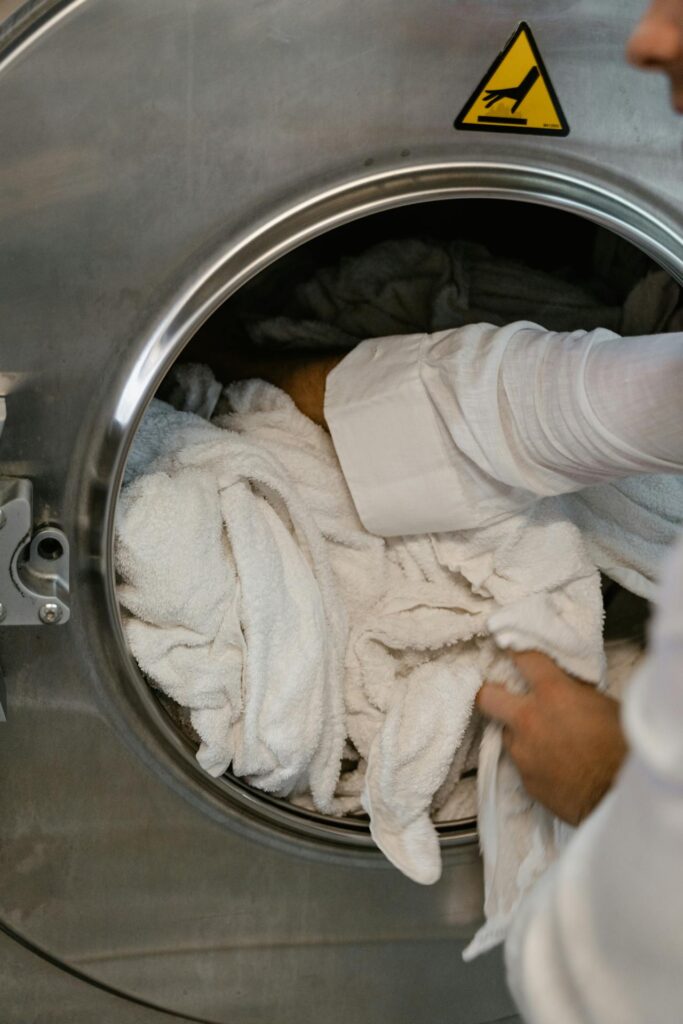
Not Utilising Dry Cleaning Services
Certain items, particularly those made from delicate fabrics or featuring intricate details, require professional care. Attempting to wash these at home can lead to disaster. Recognise when it’s worth investing in dry cleaning to preserve the life of special garments.
Improper Stain Treatment
Stains should be treated as soon as possible for the best chance of removal. However, different stains require different treatments, and using the wrong method can set the stain permanently. Always research the best approach for the type of stain and fabric before proceeding.
Read: Top tips for removing the most stubborn of stains
Forgetting To Empty Pockets
Leaving items in pockets can cause havoc in the wash, from ink stains to damaged garments and even the machine itself. Always check pockets before washing.
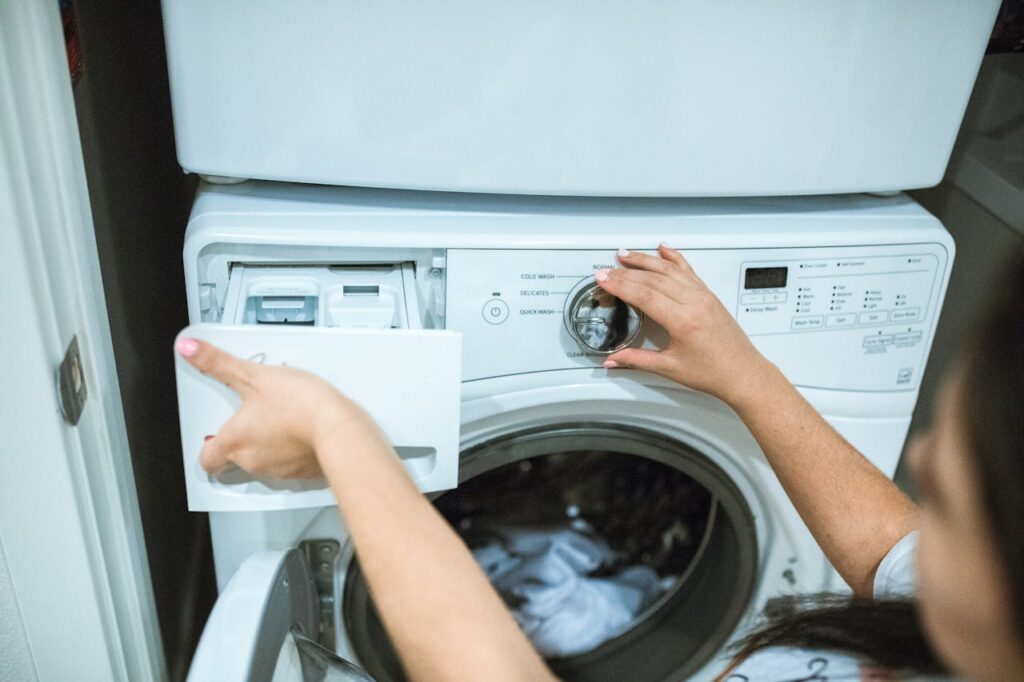
Ignoring Care Labels
Those little labels inside your clothes are there for a reason. They provide essential information on how to care for the garment. Ignoring them can lead to shrinkage, colour bleeding, or fabric damage.
Read: 6 great tips on making your clothes last longer
Using The Wrong Wash Cycle
Each cycle on your washing machine is designed for different types of laundry. Using an intensive wash for all your clothes can cause unnecessary wear, while a delicate cycle might not clean heavily soiled items effectively. Match the cycle to the load for optimal results.
The Bottom Line
Laundry may seem straightforward, but these common missteps can compromise the cleanliness and longevity of your clothes. By adjusting your laundry habits, you can ensure that your garments remain in pristine condition for as long as possible. And sometimes, amongst the crippling mundanity of life, that’s all you can wish for.





